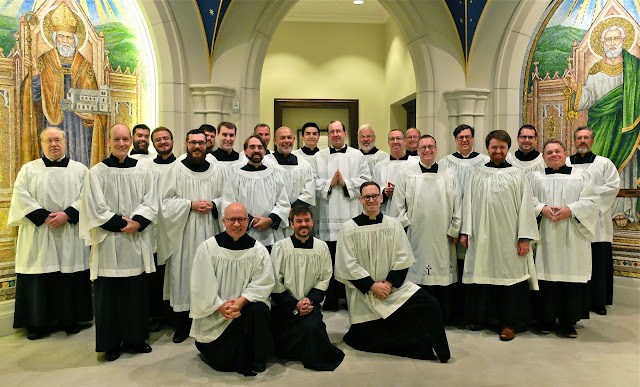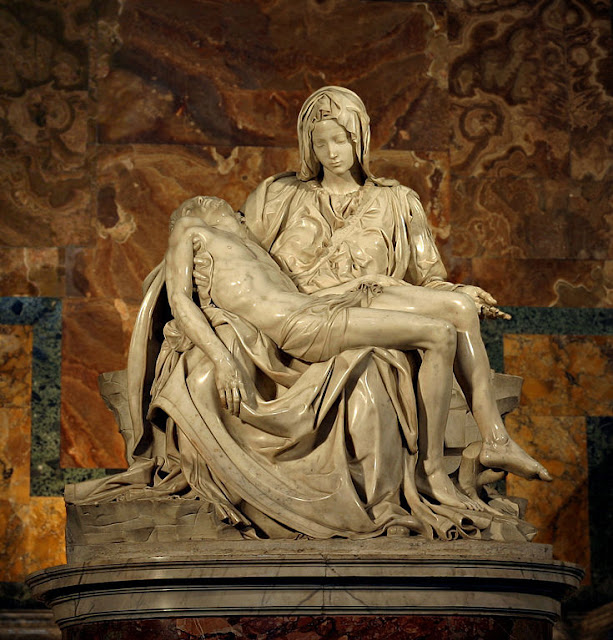"Beauty and holiness were to go into the midst of squalor and depression".
 |
| Fr. George Rundle Prynne |
Schneider@LsNews
by Paul Smeaton
HT/Fr. Hunwicke
There is a touching witness from the Oxford Movement in the Anglican Church in the 19th century, about the value of the beauty of the liturgy and the zealous administration of the sacraments in the time of the dangerous and highly contagious cholera epidemic in England. The Catholic Church does not recognize these sacraments as valid, but the fact that these ministers placed such importance on pastoral care during an epidemic should be a witness to us now.
In 1866 pandemic Cholera attacked Britain for the fourth and final time in an epidemic which struck with extreme ferocity in the East End of London.
“The ritual innovations of (which) they were accused were entirely rooted in the desperate pastoral needs they encountered. Sisters of Mercy worked with the clergy of St. Peter’s Plymouth in the cholera epidemics of the late 1840s, and petitioned the parish priest, Fr. George Rundle Prynne, for a celebration of the Eucharist each morning to strengthen them for their work. So began the first daily mass in the Church of England since the Reformation. Similarly, the clergy of St. Saviour’s, Leeds, laid what medicines they had on the altar at each morning’s communion, before carrying them out to the many dozens of their parishioners who would die of cholera that very day. These slum churches and their priests are far too many to mention, but their audacity and their piety are to be marveled at. The Church of England, at this time, looked upon ritual as a wicked aping of a Papist Church. Vestments were horrific to most, and yet in places such as the mission church of St George’s in the East, thuribles were swung, genuflecting was encouraged, the sign of the cross was made frequently, devotion to the blessed sacrament was taken for granted. Confessions were heard, holy anointing was practised. Beauty and holiness were to go into the midst of squalor and depression, as a witness to the Catholic faith in Jesus Christ, the incarnate God, present and active in his world. And, perhaps most significantly, the sick and dying were to receive this sacramental presence as far as was possible. Deathbed confessions, the oil of unction, even, occasionally, communion from the reserved sacrament became the priests’ weapons against, for example, the appalling East London cholera epidemic of 1866.”
On Fr. George Rundle Prynne: http://anglicanhistory.org/bios/grprynne.html
Plymouth devastated in 1849
The selfless devotion of Prynne and his helpers during this terrible epidemic is a story in itself: but from the historical point of view it is remarkable as the occasion of two great steps in Catholic development. To the help of those at Plymouth came Miss Sellon and her Sisters of the Society of the Holy Trinity: it was one of the first instances of the revival of the active religious life within the English Church. The second event was connected with it: to aid the Sisters and clergy in their perilous work among the sick and dying, Prynne established a daily Eucharist in St. Peter's, and with one short break it has continued ever since. This was apparently the first time since the Reformation that the daily offering of the Holy Sacrifice had been known.
The cholera departed, Prynne and his clergy escaped unscathed, and the Sisters also with one exception; and their labours had been in no sense in vain, from any point of view that really counted. Apart from all else, hundreds of souls now recognized the devotion which was an inseparable part of the religion for which Prynne and St. Peter's stood: and the same thing was recognized by the Bishop, to whom a most moving and graphic account of the whole episode was written by Prynne's assistant priest, the Rev. G. H. Hetling.
.jpg)





Comments
Post a Comment
Your comments will be appreciated and posted if 1) they are on topic and 2) preserve decorum.
Stand by your word.